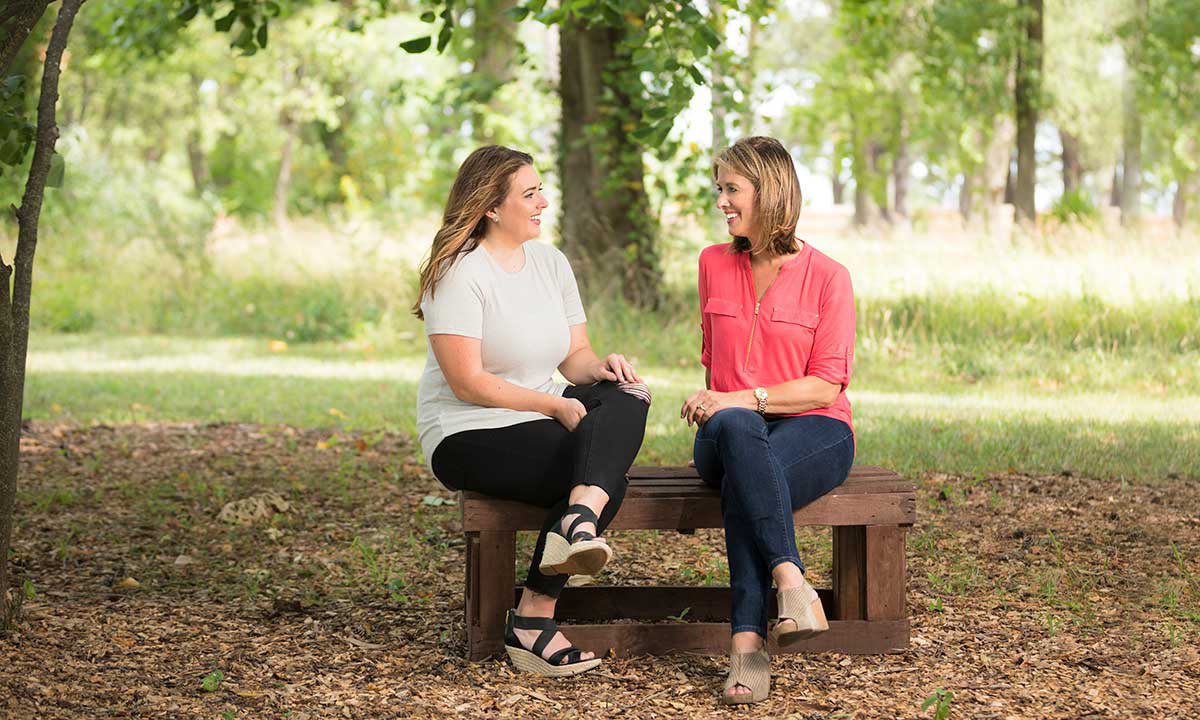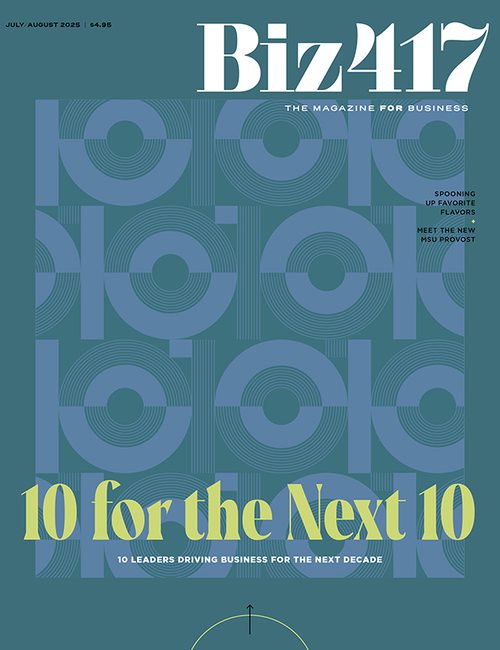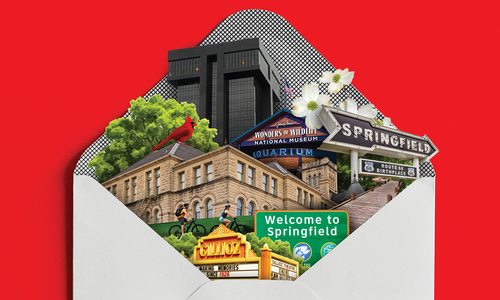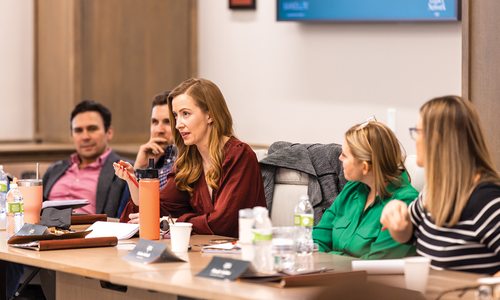
Leadership
How Julie Higgins Helped Jody Glazner Start Springfield Dream Center
The founder and CEO of I Pour Life helped Glazner find the inner strength she needed to make her dream a reality.
By Claire Porter
Sep 2018

Before Jody Glazner opened the Springfield Dream Center as its executive director, she was feeling the pull of new opportunity in her life. She turned to her mentor, Julie Higgins, founder and CEO of I Pour Life, to help her face this new challenge head-on.
Biz 417: What about each other drew you together?
Julie Higgins: She’s just so magnetic. Everyone is drawn to her
Jody Glazner: The minute I met Julie, I thought, “That’s what I want to be when I grow up.” I want to be the female leader who can handle it, because no one can handle it the way Julie can. And it was that balance of this fierceness toward a goal but a gentleness to her, and I thought that’s how I want to be. Oh, man. There was just such a beauty to the way she balances everything.
Biz: Jody, what were your goals going into your mentorship?
JG: I went into that knowing that something new was happening. What I’ve been doing was great, but I need[ed] to be doing something different, and [I was] very unsure of how I make that step. I had this idea that was a dream in my heart that I’d had since I was an 11-year-old Jody, but that lay dormant for a while because you think, “I can’t do that until I’m a grown-up.” And part of what I love about Julie is she wasn’t afraid of new things, and that’s what I saw. You owned a cookie company, and now you are changing people’s lives globally and locally, and I’m like, “How did she know to do that? How did she get there?” So, I could feel that same tension internally of, what you’re doing is not bad, but you need to be doing something bigger, and how do you know when to make that step?
Biz: Julie, what is your strategy as a mentor?
JH: You have to go into your cave to discover who you are so when you come out, you can be that roaring lioness to be able to take on what God’s called you to take on. Find your own cave so you can journal, detox things from your life, even set boundaries on relationships. Whenever someone takes those principles and they apply them to their life, there’s really not much mentorship that has to take place because it may be a watering in their life. There’s no more planting seeds because the seed’s been there. You’re just helping cultivate that seed and letting it grow for others to be able to have a better life, really.
Biz: What makes for a successful mentorship relationship?
JH: As a mentor, it’s knowing your position. Some people think it has to be a very rigorous schedule. No, they just have to know, No. 1: I believe in you. No. 2: I always will have your back. And how do I have [Jody’s] back? It’s championing her to believe you can get through this battle, and I’m right there with you.
JG: I think people confuse mentorship with an advisor a lot. What I didn’t need from a mentor was someone to just tell me everything. I didn’t need to clear all my plans and ideas and thoughts through Julie. That’s more of an advisor. She just unlocked in me my own belief that, “Okay, I can.”
Biz: What have you learned from each other?
JG: What she’s helped me to do too is helping me balance when to reach out and when to retreat. I think if all she ever taught me was to retreat into my cave, then I’m missing out on some of the best things that have happened at the Dream Center, [which] have been because of those reach-out moments. And she taught me that mostly by modeling it.
JH: I’ve learned resilience from Jody. I’ve learned perseverance from her. She really has inspired me to realize that entrepreneurship is fantastic. I do it, and maybe I don’t think as much about it, but when I watch the success in someone else, it inspires me to keep going on.
Biz: What advice do you have for someone seeking a mentor-mentee relationship?
JG: Part of it is to recognize what you want. I needed someone to encourage and call out in me the bravery to do what was next. So, what do you need? You’ve got to have this specific segment of your life where you are saying, hey, I need intentional investment. And I’m not just going to ask anyone to speak into those parts of my life. I needed to recognize what I needed, then I needed to find someone who I wanted to be like. That mentor needed to embody the things that I was okay with being called. I want to be kind. I want to be smart. I want to be intentional. I want to be the things that I saw in Julie. I think you have to recognize those things before you ever approach it.
JH: If you’re being asked to be a mentor, I think realizing, “Do I have the time to invest in this person?” If I can’t commit to the initial time with them, to praying for them—because I really believe in praying for whoever has asked me to do that; I don’t take that lightly. I have to do a check and balance with myself to say, “Am I going to be able to invest with them what needs to be invested, and are they ready? I want to know that who I’m mentoring has—that they are fully loaded and ready to do exactly what I want them to do, and Jody was so hungry to be able to step into that next season. So, I think honesty with yourself as a mentor to say, “Am I really doing my due diligence for this person.” And, am I at a healthy place in my life to be able to pour out to that person? I think you just have to evaluate if you’re in a healthy place to do that.
Needing Guidance?
Want to learn from Julie Higgins outside of a formal mentorship? Tune in to her Facebook profile, Julie Graham Higgins, the second Tuesday of every month at 4:30 p.m. for her “Life & Leadership” videos.












